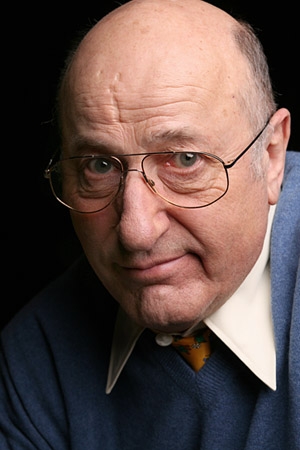Gallery
All Pictures (25)Biography
Manfred Krug, born February 8, 1937, in Duisburg, moved to the GDR with his father after his parents separated. In Brandenburg an der Havel, Krug became a smelter and worked for four years in a steel plant and rolling mill. Simultaneously, Krug attended evening classes to catch up on his school exam. In 1954, Manfred Krug started his acting career when he attended actor's training at Staatliche Schauspielschule Berlin. But shortly before graduation, the rebellious young actor was expelled. Krug then went to Berliner Ensemble where he finished drama school.
In 1957, Krug made his movie debut as a guitarist in "Die Schönste". Because of his strong build, his powerful body language, and his rebellious presence, Krug mainly played roles of villains and young rowdies in the early years of his movie career. But in 1960, he made his first breakthrough in an ambitious role in Frank Beyer's successful civil war drama "Fünf Patronenhülsen" ("Five Cartridges") alongside Erwin Geschonneck. During the following years, Krug appeared in a series of DEFA entertainment movies with audience appeal and portrayed either socialist or anti-fascist heroes, or acted as a socially "valuable" role model, for instance in Ralf Kirsten's contemporary comedy "Auf der Sonnenseite" (1961).
Krug did not clash with the censors of the SED regime until 1966 when his portrayal of a rebellious and brash building site brigadier in Frank Beyer's adaptation of the best-selling novel "Spur der Steine" ("Traces of Stones") was deemed as too "anarchic" by the ruling powers – and the film was taken out of the cinemas. Indeed, the role of the aggressive, yet down-to-earth worker who defies authority and often kicks over the traces has always been one of Krug's main roles. With films such as the historical adventure "Mir nach, Canaillen" (1963) or the contemporary Eastern road movie "Weite Straßen – stille Liebe" (1969), Krug became a favourite of teenage moviegoers in the GDR.
During that time, Krug was also successful as a chanson and jazz singer, and as a theatre actor. He toured the GDR, Poland, and Czechoslovakia with his musical program and played the role of Sporting Life in a production of George Gershwin's "Porgy und Bess" at Berlin"s Komische Oper from 1970 to 1976. After recording his first albums already during the 1960s, Krug published a record nearly every year between 1970 and 1976. (And he made several further records from the mid-1990s on.)
In 1976, Krug used his popularity to protest together with other creative artists from the GDR against the expatriation of the dissident singer-songwriter Wolf Biermann. But then the popular actor, who had won numerous awards in the years before (among them the National award and the Medal for Merit of the GDR), was suddenly subjected to sanctions and censorship. The situation escalated when Krug beat down a Stasi informer who had insulted and defamed him publicly.
After being partly banned from employment for half a year, Manfred Krug applied for permission to leave the country in April of 1977 and finally left the GDR. After his transmigration to West Germany, Krug was able to continue his acting career without a break. With a leading role in the successful and long-lasting TV series "Auf Achse", Krug made his breakthrough in West Germany already in 1977. Until 1993, he appeared in five seasons and roughly 70 episodes of the series.
First and foremost, Krug became a television star in West Germany. He played an attorney in the Berlin-based comedic attorney TV series "Liebling Kreuzberg" (1986-1998), a detective in the crime series "Detektivbüro Roth" (1986-1987) or Hamburg-based chief inspector Stoever in the crime series "Tatort" (1984-2001). Krug's most popular and successful roles feature characters who work for the law but take liberties with the law and the authorities.
Manfred Krug died October 21, 2016 in Berlin, age 79.
